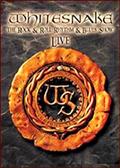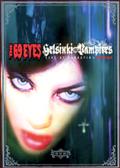PRONG (usa) - Cleansing (1994)

Label : Epic Records
Sortie du Scud : 25 janvier 1994
Pays : Etats-Unis
Genre : Thrash Metal
Type : Album
Playtime : 11 Titres - 57 Mins
Le Metal, c'est comme la bouffe. Des fois on a envie de gastronomie, des plats compliqués et savants avec des saveurs cachées, des trucs subtils et intellectuels sur lesquels il faut être bien concentré au risque de passer à côté de la sensation ultime. Mais il y a des jours où on veut profiter du plaisir simple d'un fish and chips ou d'un bon cheeseburger accompagné d'un bock. Une nourriture simple, grasse, prévisible mais néanmoins délicieuse. Dans ces moments, on se sent d'humeur à écouter PRONG.
Quatrième effort du trio new-yorkais, Cleansing est particulièrement remarquable dans le genre gras qui tâche. C'est l'album qui amorce le crossover entre Thrash et Metal Industriel qui atteindra son climax avec le méfait suivant, Rude Awakening (1996). Dans la famille Indus, le son PRONG se rapproche de celui de NIN. Des musiques hyper compressées donnent une espèce de rondeur à l'ensemble, une sonorité froide et chirurgicale. Les riffs sont parfois un peu évidents et répétitifs ("Broken Peace", "Cut-Rate") mais diablement efficaces. Celui de "Snap your finger, snap your neck" est classé 35ème dans le top 100 des meilleurs riffs de tous les temps établi par le magazine Kerrang !
L'opus démarre comme une balle, avec cinq morceaux imparables "Another Wordly Device", "Whose Fist Is this Anyway", "Snap your Finger, Snap your Neck", "Cut-Rate" et "Broken Peace". Malheureusement, le reste de la tracklist n'est pas aussi bon. Une fois qu'on a digéré cette grosse claque adipeuse, on entre en phase de digestion, et tel l'anaconda, dans une espèce de demi-sommeil languide. Cela commence par une piste un peu moins rentre dedans, plus lente et moins dans le ton ("One Outnumbered"). La suite n'est guère plus intéressante. Ce n'est pas à proprement parler mauvais, mais le postulat musical a été défini dans les premières tracks et la suite n'apporte rien de plus au concept. La torpeur post prandiale se poursuit jusqu'à l'ultime piste du skeud, "Test", qui revient à ce bon son qu'on avait tant aimé sur le premier tiers et perdu de vue par la suite, y compris un beau solo bien acide, et rien de tel qu'un peu d'acidité pour faciliter la digestion.
Cleansing a donc vraiment tout de l'album Cheeseburger. Car le problème commun à la musique et au plat, c'est qu'on s'en lasse. On n'a pas vraiment envie de l'écouter en boucle car le méfait livre ses atouts du premier coup. On en a ras le bol une fois l'assiette terminée mais on sait qu'on y reviendra bientôt pour prendre une nouvelle dose de gras facile.
Ajouté : Vendredi 03 Avril 2015
Chroniqueur : Rivax
Score :    
Lien en relation: Prong Website
Hits: 5018
|














